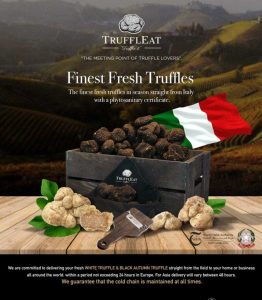There’s no crystal ball to gaze into to determine the future of the food and beverages sector. Instead of magic, we use the power of technology and data from signals that we track and gather on an ongoing basis.
Artificial intelligence-based analytics allow us to delve into consumer preferences and develop multiple future scenarios for risks, opportunities and uncover the next big thing in snacks or sparkling beverages.
We can mine data to dream up new flavours. We can use insights to predict market demand and ensure our marketing campaigns are relevant to the consumers. And we can tap into the trends that affect our brands and the people who buy them now – and in years to come.
With that in mind, here are three factors that will shape the evolution of our industry in 2023:
In an unpredictable world, home becomes a haven
We live in turbulent times. De-stabilising events are becoming more common and we all have a growing sense of the fragility of the world around us.
The cost-of-living crisis affecting households across Europe means people are managing their finances more closely. As we navigate the mental health crisis that began to unfold with the first waves of the Covid pandemic, many of us are choosing to spend more time at home, protecting us from that feeling of vulnerability that surrounds us.
It all adds up to a growing trend of people choosing to stay in more often and make time spent at home feel like more of an occasion. For consumer brands to thrive in the future, they need to be there too.
People are increasingly looking for little moments of joy – affordable and accessible – as they welcome relief from stress by socialising with those who are important to them, as well as experiencing new things again.
That’s something they find in the brands they love. When nights out are off the menu, our ads, campaigns and products need to own these moments, letting people connect with each other and enjoying themselves.
That’s how we’ll stay at the top of consumers’ minds and, in turn, their shopping lists.
Product portfolios must have purpose
According to research from Deloitte, 64% of consumers in the UK have limited their consumption of single-use plastic in the past 12 months – a trend that’s grown since the previous year.
Thirty-four per cent of respondents said they had stopped purchasing brands because of ethical or sustainability-related concerns about them.
These are clear signals that consumers are increasingly holding brands to account – and the FMCG world must commit to working in a way that’s ethical, responsible and that inspires positive change if we want to win their loyalty.
Incredible progress is happening in this space so let’s tell people about it.
At PepsiCo we’re collaborating with governments, suppliers and retailers to improve infrastructure for recycling. We’ve switched to recycled PET packaging (excluding cap and label) for our bottles across 11 markets in Europe.
And we’re working with farmers across Europe and in Ukraine to support them their use of sustainable agriculture during unimaginably challenging times.
More partnerships and programmes are taking shape across global FMCG sector as we all realise the potential of purpose to power growth. I’d like to see more happening in this space.
Shoppers will seek value beyond price
When it comes to our products at PepsiCo, taste is king. The guarantee of familiar, delicious flavours, fizzes, crunches is what keeps consumers coming back for more.
But in the future, great taste on its own won’t continue to cut it. Brands need to be better, in every way possible.
People want more for their money, whether that’s a unique experience instore, a limited-edition must-have that creates a buzz, or a benefit they simply can’t find elsewhere.
One key trend that continues to grow is that consumers are looking for healthier choices.
As part of PepsiCo’s sustainability commitments, our experts are reformulating products to provide consumers with more positive choices that are lower in saturated fats, salt and sugar, kinder to the planet and never compromise on taste.
As we look to the future, there’s no doubt in my mind that connecting with consumers’ emotions as well as their tastebuds and shopping habits will prove ever-more important.
In a fragile world, great brands provide predictability and comfort – and after the past few years I’m sure we could all do with a little more of both.
Ian Ellington is chief marketing officer of PepsiCo Europe.

